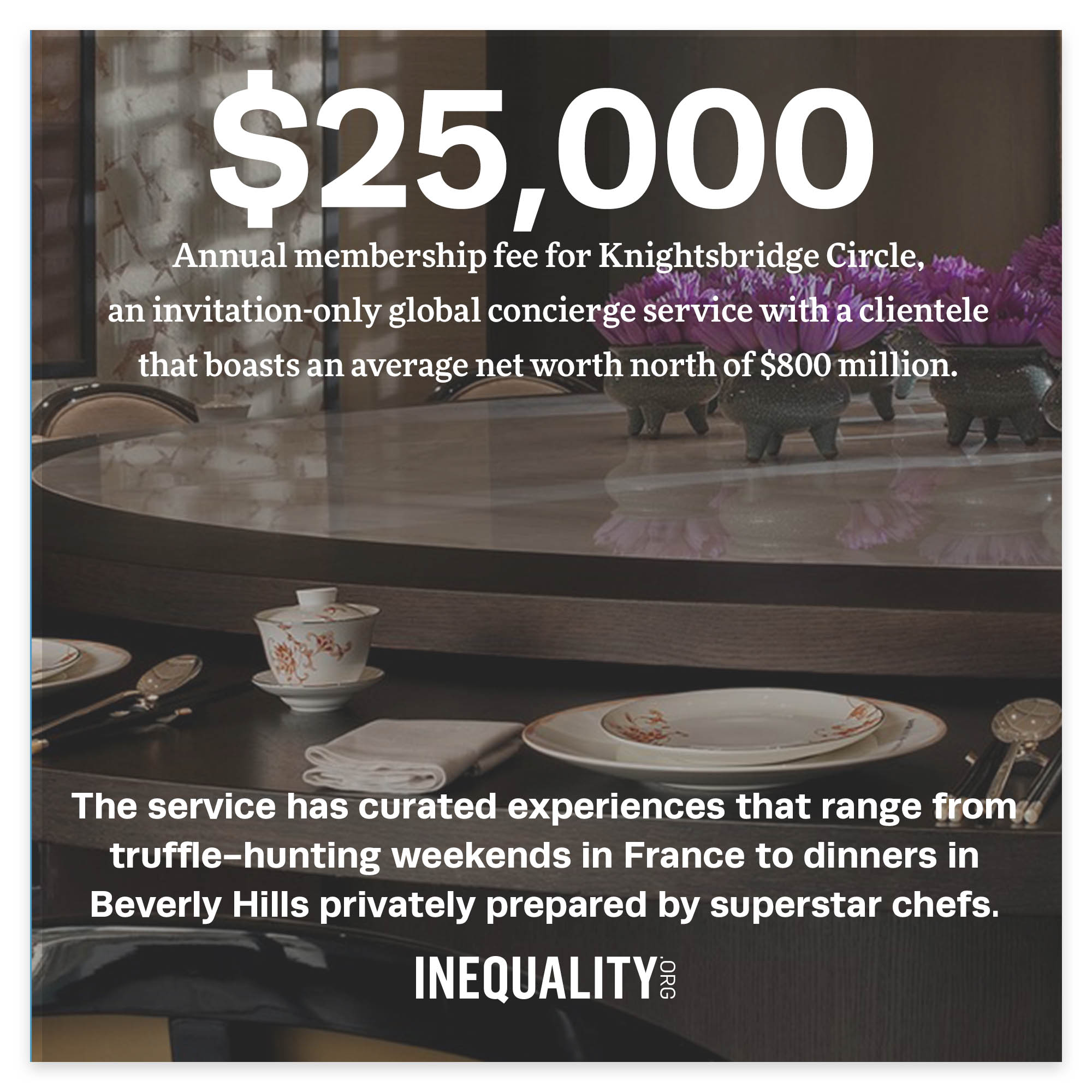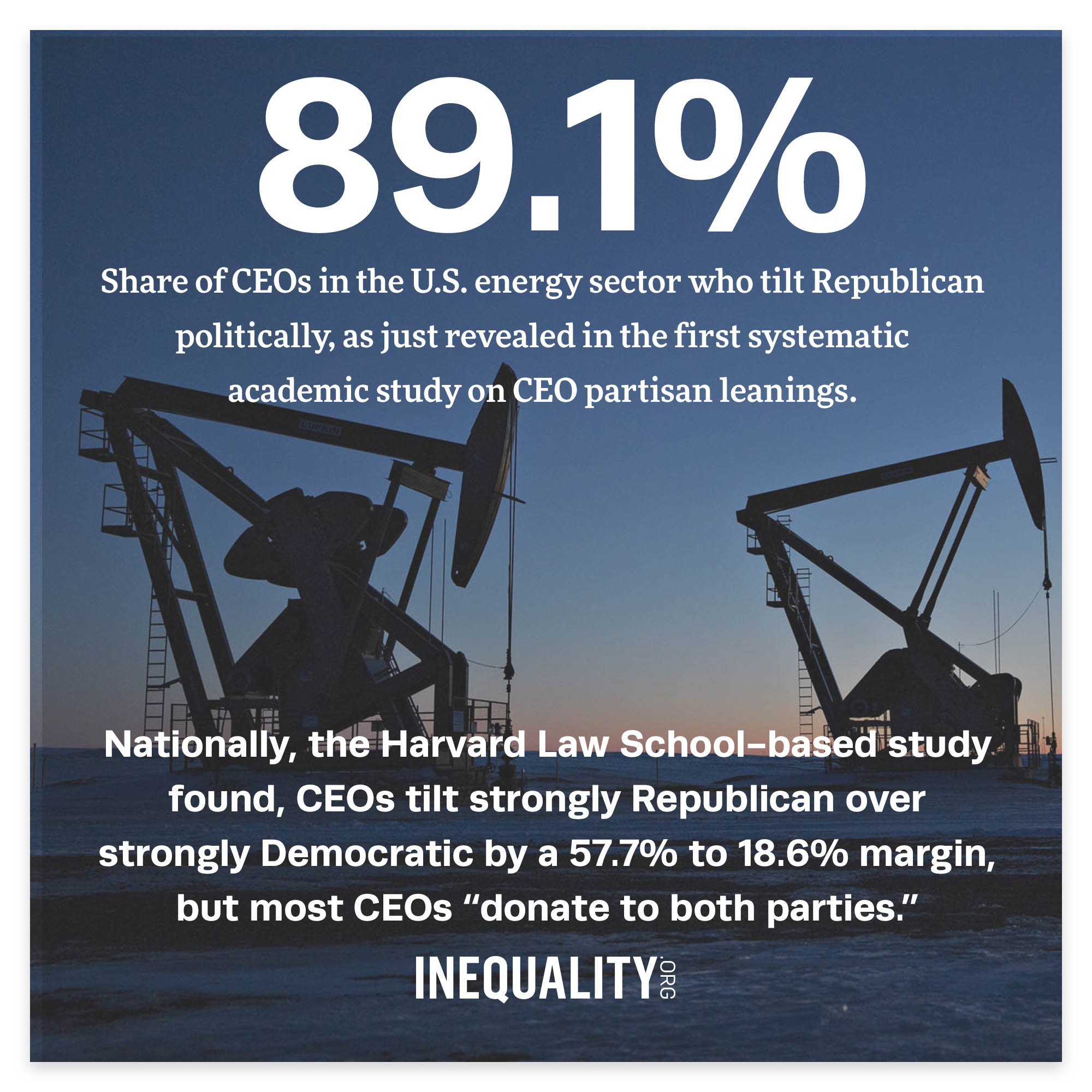Next month, we’ll be joining up with some of our epoch’s best thinkers on inequality at the first-ever “Taxing the (Very) Rich” conference.
|
THIS WEEK
|
For those of us here at Inequality.org, one devilishly difficult question animates much of the work we do: How can we rein in the power that the richest of the rich have over every aspect of our society?
Next month, we’ll be joining up with some of our epoch’s best thinkers on inequality to address that question, at the first-ever “Taxing the (Very) Rich” conference our Institute for Policy Studies is co-hosting with the Economic Policy Institute.
Economist Paul Krugman, famed authors Nancy MacLean ( Democracy in Chains) and Barbara Ehrenreich ( Nickel and Dimed), and a host of other scholars and activists will be on-hand for this special one-day June 25 gathering. We hope you can be there with us! More details down below at the end of this week’s issue.
Chuck Collins, for the Institute for Policy Studies Inequality.org team |
|
|
|
|
INEQUALITY BY THE NUMBERS
|
 |
|
|
|
|
|
|
FACES ON THE FRONTLINES
|
 |
Washington Leads the Way on Elder Care Equity
|
| In 2035, the year demographers tell us seniors will outnumber children in the U.S. population, we might be looking back and crediting Washington State activists for standing at the forefront of efforts to tackle America’s elder care crisis. On May 13, thanks to these activists, Washington became the first state in the nation to adopt a social insurance program for long-term care benefits. Inequality.org co-editor Sarah Anderson has more on the new Washington program and the activists pushing to make it the standard across the country. |
|
|
|
|
WORDS OF WISDOM
|
 |
|
|
|
|
|
PETULANT PLUTOCRAT
OF THE WEEK
|
 |
| A Few Hundred Million Good Reasons Not to Care |
| Millions of American families are still reeling from the aftershocks of the financial crash a dozen years ago. But one of the architects of that debacle, Countrywide Financial CEO Angelo Mozilo, is feeling no pain — and no remorse either. In the decade before the crash, Mozilo took $650 million out of Countrywide, a hefty chunk of that just before the subprime mortgage scam Countrywide exploited started to implode. Earlier this month, Angelo described Countrywide as a “great company” at a conference appearance and declared subprimes as “not the cause at all” of the nation’s 2007-2008 financial wreckage. Added Mozilo: “Somehow — for some unknown reason — I got blamed.” The former CEO is acknowledging that all the blame did at one point bother him. And now? The famously always tanned Mozilo notes simply: “I don’t care.” |
|
|
|
|
GREED AT A GLANCE
|
 |
|
|
|
|
|
|
TOO MUCH
|
 |
| For Equality, This U.S. Labor Leader Gave the Max |
| Larry Hanley, the national union leader who died unexpectedly earlier this month, never became much of a “household name.” His death, at just 62, received scant major media attention. But if Hanley’s heyday had come a couple generations ago, in the middle of the 20th century, that attention would have been abundant. Hanley, a big man physically, had big ideas about economic justice, just like the labor leaders who became national heroes over the 20th century’s first half. Those union leaders believed, as Hanley believed, that social decency demands struggle on two fronts. They struggled first to level up those at society’s economic bottom. But just battling to level up, New Deal-era labor leaders understood, would never be enough. They had to level down as well and reduce grand private fortunes down to more democratic dimensions. Inequality.org co-editor Sam Pizzigati, author of The Case for a Maximum Wage, has more. |
|
|
|
|
|
|
MUST READS
|
This week on Inequality.org
Josh Hoxie, Debunking Myths About Wealth and Race. Individual behavior doesn’t drive the racial wealth divide. What does: a system that many folks pretend doesn’t exist.
Chuck Collins, Help Today’s College Students as We Did for Previous Generations. Can you imagine being 22 and finding yourself $150,000 in debt? We are facing generational abuse.
Elsewhere on the web
Roge Karma, The Gross Inequality of Death in America, New Republic. The richest Americans live on average up to 15 years longer than America’s poorest.
Hillary Hoffower, Rich people keep buying things that aren’t actually functional to show off their wealth, Business Insider. Why do people of means in notoriously hilly San Francisco buy fixed-gear bikes with no brakes? A Wharton prof explores the psychology of “afunctionality.”
Carol Johnson, Is the crisis of social democracy a crisis of equality? Social Europe. The challenges for social democracy today go beyond the old dilemmas of how to tame capitalism and enhance class equality.
Matthew Boesler, Fed’s Kashkari Adds Inequality to Argument for Keeping Rates Low, Bloomberg. With Federal Reserve data showing the top 1 percent share of U.S. wealth up nearly by half since 1989, Fed officialdom is starting to acknowledge that policy makers should take income distribution into account.
Isabel Sawhill, We need to rethink our economic assumptions, Brookings. A well-respected mainstream economist is questioning the neoliberal precepts that serve to justify the wealth of the wealthy.
Robert Nixon and David Bingham, We are a group of wealthy Connecticut residents, and we want to pay more in taxes, Hartford Courant. Higher state taxes, the evidence shows, don’t drive out of state wealthy taxpayers. |
|
|
|
|
A FINAL FIGURE
|
 |
|
|
|
|
|
| UPCOMING CONFERENCE |
 |
| Finding the Cure for Excessive Wealth Disorder |
The Institute for Policy Studies, Inequality.org, and the Economic Policy Institute invite you to attend a day-long conference on Taxing the (Very) Rich. Join policy experts, activists, and elected officials who will be making the case for taxing the very rich — and debating how best to accomplish that taxation!
Any serious policy agenda geared towards combating inequality and raising living standards for the vast majority, the conference will help show, must look to ultra-high earners in the top 0.1 percent, the elites who wield disproportionate economic and political power.
Free with Eventbrite Ticket. |
|
|
|
|